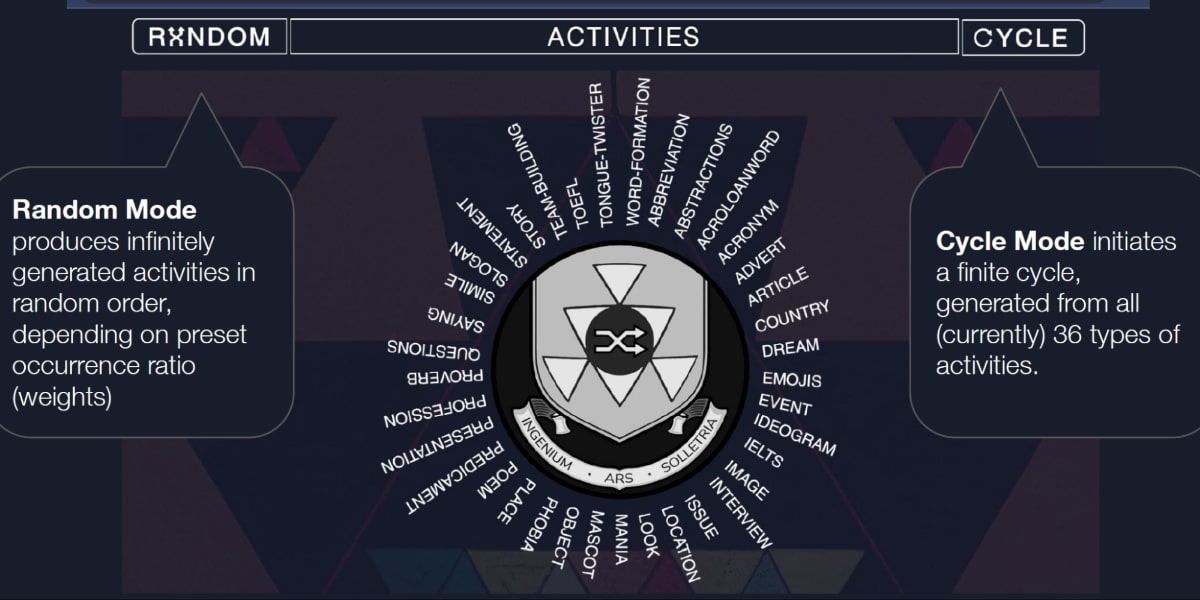When we dive into creativity training, the predominant and often sole emphasis revolves around a hackneyed and somewhat banal activity of assigning various functions to a given object. The challenge entails brainstorming as many functions as possible for a specific item, like a book or a brick. This exercise has become as prevalent and clichéd as the “sell me this pen” scenario in job interviews, leading many to perceive it as the primary and exclusive measure of creativity, determining whether an individual thinks unconventionally or innovatively.
In recent decades, there has been a remarkable surge in individuals aspiring to become stand-up comedians or podcasters. They recognize the need to hone the skills of humor and improvisation, essentially “connecting different planes.” As the illustrious British encyclopedist and author Arthur Koestler articulated in his book “The Art of Creation,” connecting different planes entails operating not confined to a single realm, such as science, art, or humor. This is where a pun surfaces, injecting humor and memorability into jokes or anecdotes through clever juxtaposition. Unanticipated connections between diverse planes can create a unique blend, triggering a Eureka or aha! moment, commonly referred to as insight.
This is the juncture where randomization platforms come into play. Randomization itself is not novel. Several projects have incorporated this concept. For instance, cue cards are used in talk show interviews, where celebrities select a card and respond to a question. Responding to impromptu questions lacks originality, as the difficulty lies in cleverly linking completely unrelated random elements in a sketch or monologue. This is where the skill known as “grandomastery,” or great random mastery, becomes crucial. According to Definitions.net, grandomastery is the cognitive flexibility and metacognitive awareness necessary to embrace ambiguity, navigate uncertainty, and capitalize on spontaneous events across various life domains, fostering enhanced adaptability and goal attainment. Several freely accessible platforms, including grandomastery.com developed by Alexander Popov, an expert in English Language Teaching (ELT), provide various exercises for English learners and native speakers.
Within the grandomastery technique, individuals can weave humorous stories based on random concepts. For instance, a Random Story chain generates concepts from various possibilities, resulting in unpredictable story points.
This brings joy to the audience and the performer, whether a comedian or an improvisation artist. Another entertaining activity associated with the grandomastery concept is the Random Anti-start-up. This initiates a similar chain but unstructured, utilizing thousands or millions of PowerPoint slides derived from a Stanford experimental dataset. Participants then amalgamate these slides to craft a logically woven presentation featuring an anti-startup theme, challenging conventional and meaningful startup ideas that saturate our lives.
Another remarkable grandomastery activity warranting attention, even in unofficial pub events instead of traditional general knowledge quizzes, is the Random PowerPoint Presentation. This activity is rooted in the “Blind PowerPoint Presentation,” where participants are assigned a theme and craft a presentation based on entirely randomized and unpredictable slides.
All three mentioned activities share a common thread of combining the incombinable, logically connecting different ideas on the go without interruptions. Similar activities can extend to audio formats, such as the Audio Story Chain, where a script utters specific keywords, and participants must connect them on the fly without any prior preparation upon hearing each keyword. While this may initially appear daunting, embracing relaxation and going with the flow transforms it into an enjoyable experience.
Some experts propose that engaging in activities aimed at improving the ability to establish connections between dissimilar and unrelated concepts may enhance synaptic connections within our neural networks. This, in turn, could foster the development of our capabilities for creative thinking, adaptive responses, and the application of integrative thinking and complex abstract reasoning. Some theorists even propose that grandomastery might function similarly to language therapy, serving as a diversion from pressing issues. They suggest that engaging in grandomastery practices could potentially lead to the generation of ready solutions, which may offer practical applications when reoriented to real-life situations.
Irrespective of the scientific interpretation one follows, I encourage everyone, whether a comedian, a podcaster, or someone seeking to keep their improvisation skills sharp, to dive into these grandomastery activities. The joy lies in sharing these experiences and witnessing others approach similar exercises. These creative processes birth new ideas, inspiring us to delve further into the realm of creativity.
Published By: Aize Perez






